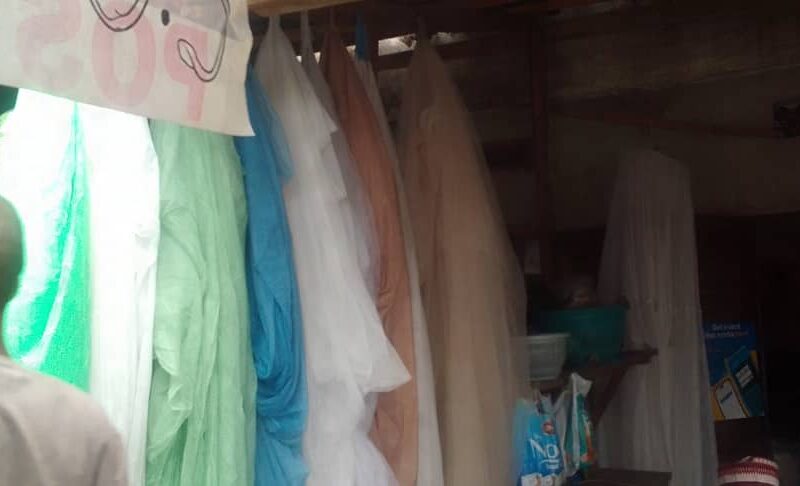Parents say that – even though their children are suffering – in the present harsh economic climate they cannot afford to put food on the table let alone buy mosquito nets.
The prohibitive cost of mosquito nets has resulted in an alarming increase in the number of malaria infections in Borno State – particularly among children in internally displaced persons’ (IDP) camps.
Parents say they cannot afford to put food on the table, let alone buy mosquito nets which have more than doubled in price.
In the harsh economic climate – in June this year, Nigeria’s inflation rate hit 34.19%, with food inflation exceeding 40% – along with the cost of all commodities, the price of mosquito nets has escalated sharply.
Mai Zannah, who sells mosquito nets at the Gamboru Market in Maiduguri, the Borno State capital, attributed the increase to high demand during the wet season and the ever-increasing inflation rate.
“We used to sell nets for ₦1,200 to ₦1,300, but now they cost anything from ₦3,000 to ₦4,000. Although there is high demand, most poor people cannot afford mosquito nets.”
Umar Mohammed, who lives in the Muna IDP camp in Maiduguri, said: “Our children are constantly ill because of all the mosquito bites. Most of them are suffering from malaria.
“We are aware that the best protection against malaria is to use nets but most of us can’t afford them. Mosquito nets cost between ₦3,000 to ₦4,000. How can we afford that when we are struggling to put food on the table?”
Zainab Modu, a mother of two, said both her children were sick with malaria.
“We lack both mosquito nets and blankets. I am not able to provide proper healthcare for my children. I have tried giving them malaria tablets, but without proper care they are not getting better.
“Many parents in the camp face the same challenges. We lost our mosquito nets in one the fires in Muna camp. Right now, we simply cannot afford to buy new nets. In past years, the government and humanitarian aid organisations used to give us mosquito nets but this year we have not received any.”
Modu said she had tried to use material wraps as “makeshift nets” but they did not prevent mosquitoes from biting her children.
“We need help from the government. If the price of mosquito nets does not come down, our children might die. The government must make the nets more accessible and affordable.”
According to the United Nations Children’s Fund, Nigeria accounts for nearly 27% of the global malaria burden.
During the peak malaria transmission season from July to October – the rainy season – malaria is one of the main drivers of illness and death among children under five, accounting for more than 50% of mortality and 50% of all recorded morbidity in the state.
Floods and stagnant water increase the number of malaria cases as water is the breeding ground for mosquitoes.
Children under five years of age, the poorest and most marginalised, and pregnant women and their unborn children are the most at risk.
FALMATA MOHAMED ALI









